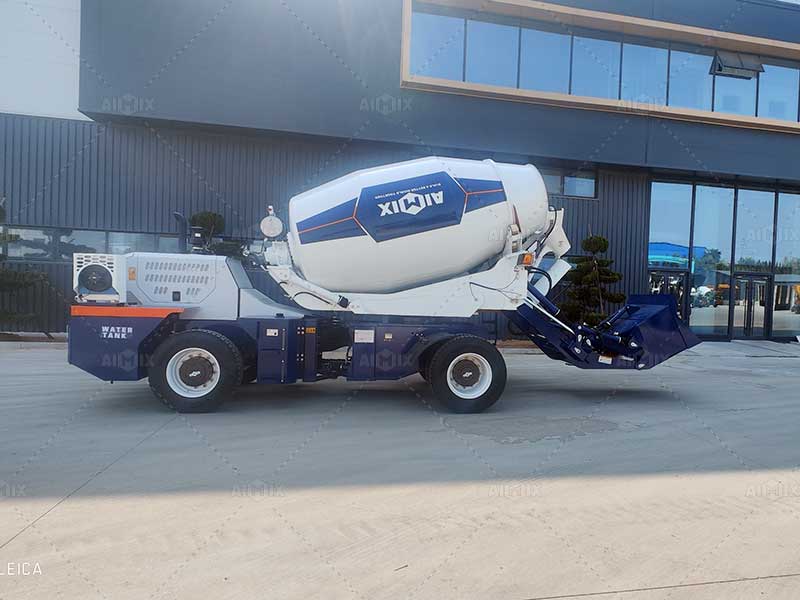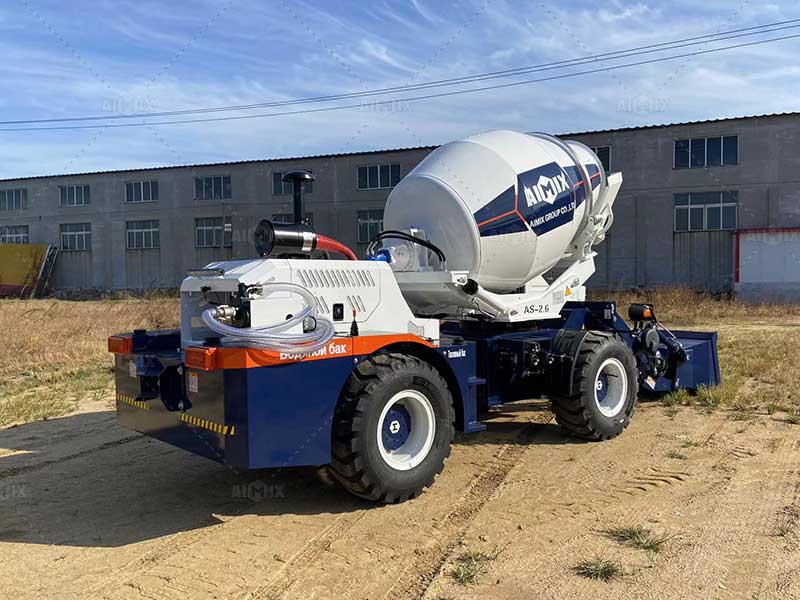In the realm of construction, efficiency and productivity are paramount. One piece of equipment that has revolutionized the industry is the self-loading mixer. These versatile machines not only save time but also enhance the overall workflow on construction sites. However, with a myriad of options available in the market, selecting the right self-loading mixer can be a daunting task.
Understanding Your Needs
Before delving into the specifics of self loading mobile concrete mixers, it’s crucial to assess your project requirements. Consider factors such as the volume of concrete needed, the frequency of use, terrain conditions, and space constraints. Understanding these needs will help narrow down the options and ensure that you invest in a self loading concrete mixer that aligns with your project goals.

Power Source: Diesel vs. Electric
One of the primary considerations when selecting a small self loader concrete mixer is the power source. Diesel and electric models are the two main options available in the market, each with its own set of advantages.
Diesel-powered mixers are favored for their robustness and ability to operate in remote locations without access to electricity. They offer high torque and are well-suited for heavy-duty applications. However, they tend to produce more emissions and require regular maintenance.
Electric-powered mixers, on the other hand, are more environmentally friendly and emit fewer pollutants. They are quieter in operation and often require less maintenance compared to their diesel counterparts. Electric mixers are ideal for indoor use or projects where noise and emissions need to be minimized. Check kinds of self loading mixers from AIMIX Group website.
Capacity and Performance
The capacity of the mixer is another crucial factor to consider. Self-loading mixers come in various sizes, typically ranging from 1 to 4 cubic meters. The right capacity depends on the volume of concrete required for your projects. It’s essential to strike a balance between capacity and maneuverability, ensuring that the mixer can access tight spaces without compromising on performance.
Furthermore, consider the performance features of the mixer, such as mixing speed, homogeneity of the mix, and discharge capabilities. Opt for a mixer that offers efficient mixing and consistent results to streamline your construction processes.

Mobility and Maneuverability
The ability to maneuver the mixer across different terrains is vital for ensuring smooth operations on the construction site. Look for features such as articulated steering, four-wheel drive, and adjustable hydraulic systems that enhance mobility and maneuverability.
Additionally, assess the size and weight of the self loading concrete mixer for sale South Africa to ensure compatibility with your transportation and storage facilities. Compact and lightweight models are ideal for projects with space constraints or frequent relocation requirements.
Technology and Innovation
Innovations in self-loading mixer technology have led to enhanced efficiency and productivity. Look for advanced features such as electronic weighing systems, onboard computers, and automated controls that simplify operation and optimize performance.
Some models are equipped with telematics systems that enable remote monitoring of the mixer’s performance, maintenance needs, and location. Investing in technology-driven solutions can significantly improve the overall efficiency of your construction operations.
Maintenance and Support
Finally, consider the maintenance requirements and availability of after-sales support when choosing a self-loading mixer. Opt for reputable manufacturers that offer reliable technical assistance, spare parts availability, and comprehensive warranty coverage. Regular maintenance is essential for prolonging the lifespan of the self loader concrete mixer uk and ensuring consistent performance over time.
In conclusion, selecting the right self-loading mixer involves careful consideration of power, performance, mobility, technology, and support. By understanding your project requirements and evaluating these factors, you can make an informed decision that maximizes efficiency and productivity on your construction site. Choose wisely, and let your self-loading mixer be the powerhouse behind your construction endeavors.
